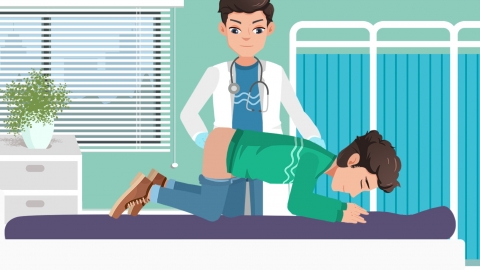How to treat anal fistula without surgery
In general, non-surgical treatment is suitable for anal fistulas with mild symptoms, those in a quiescent phase, at the early stage of acute infection, patients with poor physical tolerance, or those with comorbidities that temporarily contraindicate surgery. It is recommended to seek medical attention promptly, identify the underlying cause, and follow a conservative treatment plan under medical guidance. Specific recommendations are as follows:

1. Mild symptoms: Superficial fistula tract with minimal discharge and no significant swelling or pain. Sit in warm water at 40°C for 15 minutes, one to two times daily, to clean the anal area and promote blood circulation. Wear loose cotton underwear and change it frequently to keep the area dry.
2. Quiescent phase: No active infection in the fistula, only occasional minor discharge without redness, swelling, or pain. Avoid prolonged sitting or standing; get up and move every hour for 5 minutes. Maintain a light diet avoiding spicy foods, consume more dietary fiber-rich fruits and vegetables, and prevent constipation that may irritate the fistula.
3. Early acute infection: Sudden onset of redness, swelling, and pain in the fistula, but no abscess has formed yet. Apply topical medications such as mupirocin ointment, fusidic acid cream, or compound polymyxin B ointment as prescribed to control local inflammation and prevent infection from spreading.
4. Poor physical tolerance: Elderly or frail patients who cannot withstand surgical trauma. Under medical supervision, take oral antibiotics such as cefuroxime axetil tablets, amoxicillin capsules, or roxithromycin capsules. Additionally, improve nutrition with protein supplements and vitamin formulations to strengthen overall health.
5. Comorbid conditions temporarily contraindicating surgery: Conditions such as diabetes or heart disease that are not yet well-controlled, increasing surgical risk. First manage these underlying diseases with medications such as insulin injection, glimepiride tablets, or metformin sustained-release tablets as directed by a physician. Once the condition stabilizes, reassess the treatment plan.
In daily life, avoid alcohol and staying up late to reduce stress on perianal blood vessels. Maintain regular bowel movements and avoid excessive straining during defecation. Have regular follow-up examinations of the fistula. If increased discharge or worsening pain occurs, adjust the treatment plan promptly—do not delay care.




